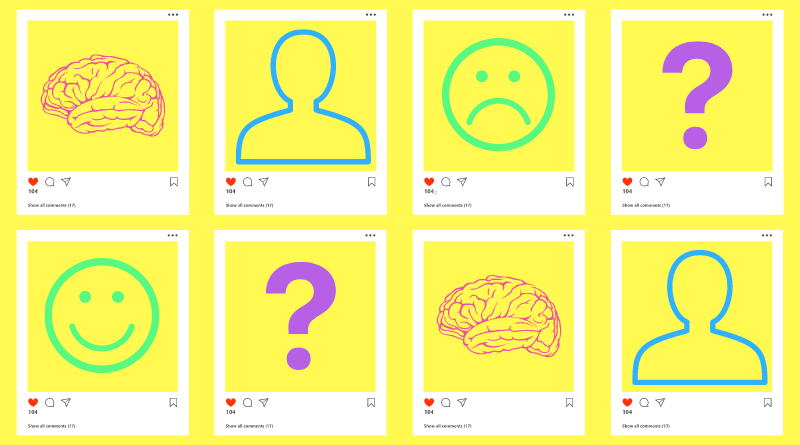Fumble blogger Dani Bancroft writes about her own experiences in coping with grief
The problem with grief is that too many people have an opinion on what it looks like, before they experience it themselves.
We have very clear step-by-step expectations of the grieving process. Although there are the well-studied 5 stages of bereavement, grief doesn’t actually have a set timeline. Emotions can pop up when you’re least expecting —or want— them to. This is normal.
Then again, it’s also very normal to experience little or no outward emotion – to be numb. When someone I loved died, it took me months to cry properly, and not being able to cry made me feel guilty. Being around others crying made me feel worse, as though somehow I was being a rubbish friend to the person I’d lost – which is not true. There can also be anger: feelings of frustration and helplessness in processing the loss, at the person you have lost for ‘leaving you’, the circumstances around how they died, at other people for being patronisingly nice about your grief or allowing life to go on.
There are other types of grief too, besides the death of someone you care about. It could be the end of a significant phase in your life – such as a relationship, or leaving a community or family behind. This can even extend to the death of a celebrity, or someone you looked up to but didn’t know personally. They all share things in common.
So, here are six things you can do to help yourself through the grieving process, along with some activities and other resources.
1. Get creative
Finding a way to stimulate your creative side is a healthy way to draw out many of the emotions you may be struggling to process. For example, taking an illustration class, going to gigs, going on photography walks, dancing or just sitting at home and doodling with some chill music. You don’t have to be good at something for it to be good for you. And taking some quiet private time to do small things like this gives you time to be sad, which is an important part of acknowledging the loss.
You can see nearby community events on Where we can go UK, as well as in local libraries, community centres and supermarket boards. Local galleries may have public events too. If you’re over 18, Meetup and Let’s Talk About Loss can help you find inspirational workshops, free talks and events, including grief support groups. Otherwise, check out the resources through your local youth centre, library or college.
2. Don’t try to avoid pain
On the other hand, some things that *don’t* help include heavy drinking, drugs, and throwing yourself into intense new relationships or one-night stands. Alcohol, as we often hear, is a depressant. So, while getting very drunk may temporarily numb the pain, drinking to forget can lead to harder ‘when reality hits’ next-day blues, and poor judgement over how much you’re actually able to drink. This can make you more vulnerable than normal. Plus, crying uncontrollably with strangers on a night bus is hardly a fun way to distract yourself.
You have to learn to accept your life without this person in it, and numbing the pain or finding unhealthy distractions just delays or harms that process. Check out this self-help guide and planner, which includes some more detail on why certain habits make the grieving process harder.

3. Eat, sleep, repeat
Emotional distress is exhausting and may mean you need to sleep more. Grief can have very real physical symptoms and eating unhealthily or sleeping odd hours – or even not at all – can make things worse. Therefore, taking care of your body through good eating and a regular routine is another simple yet important way of also taking care of your mental health.
Again, there is no timeline for grief. So when it may seem as if life is normalising and you have things under control, something small like a joke, passerby or photo —or larger triggers like anniversaries— may bring these feelings back up to the surface. But minimising the stress your body is under can help strengthen your ability to recover from these difficult moments.
4. Getting out of the house
I’m sure you’ve heard this a zillion times, but exercise can work wonders on the soul. Introducing a new physical hobby to your routine can be a lifesaver, and if it’s somewhere green, all the better. It could be yoga or some other activity in the park, walking your dog (or someone else’s dog for the day), going for a swim at your nearest pool, or in the sea. Even just sitting in the garden for a bit or walking to your nearest shop is something.
Volunteering is another great way to get out and meet new people for a healthy and productive distraction. Perhaps now is a good time to look at working towards the Duke of Edinburgh award with a local community group – or school? Also, check out volunteering databases like V-inspired for local opportunities, or government-funded placements like International Citizen Service (for ages 18-35) and National Citizen Service (for ages 15-17) for something a bit different.
5. Be honest
In the UK we’re not that good at talking openly about death. It can be hard to relate to others sometimes, and people will say awkward and insensitive things, even with the kindest intentions. Naturally, this might make you feel a bit isolated. But remember, grief hits everyone at some stage in life, and while they may not understand exactly how you’re feeling, it’s not helpful to minimise your feelings or avoid talking about it just to keep the mood light.
As well as this, you may also find you’re confused and forgetful. I found myself in a brain fog where I’d forget what I was doing, what I did yesterday and what it was I wanted to say. I’d miss appointments, skip nights out and ignore messages. Conversation with friends and family became challenging, and I became withdrawn from the exhaustion of trying to keep up with everyone else’s lives, while it felt mine had fallen apart because of the loss. Therefore, make sure you communicate to friends, teachers, co-workers and family when you need help or extra time. They will appreciate you being honest with them and yourself, even if you just need to explain you don’t feel like talking about it.
6. Reach out
At funerals or remembrance services, we can sometimes be a little overwhelmed by other people’s very public expressions of grief. This can lead to the idea that not crying somehow means that person meant less to you. This just isn’t true. When you’re out with friends or family, and you suddenly find yourself feeling guilty and upset with yourself for having a good time, laughing – perhaps momentarily forgetting your grief. You feel you shouldn’t enjoy life when they are still dead. Check yourself on these thoughts. They aren’t fair on you, nor are they healthy, and can potentially build up into something destructive.
If you’re struggling with grief, there are places you can go for help and support. You don’t have to manage this alone. It can really help to talk about how you’re feeling, particularly with specially trained professionals, and you can share as much or as little as you feel comfortable.
The NHS has great services and links for this kind of thing. If you find you are not sleeping at all, struggling with really intense emotions which aren’t getting better, finding yourself more accident prone or experiencing what you think may be anxiety or depression, or generally things have got too much, swing by your GP.
Samaritans is also a fab charity there for people experiencing these extreme lows when they’ve lost someone or something they care about. You can ring them for free on any phone by dialling 116 123 (lines open 24 hours a day). Or if you prefer emailing, drop a message by: jo@samaritans.org
Finally, recognise that loss changes you, and: ‘things can never go back (exactly) to the way they were, because you were a different person then’.
Other support
- Grief, and why we should all be talking about it
- MIND – Bereavement
- NHS – Grief after bereavement or loss
- CALM
- Let’s Talk About Loss
Read more
Last Reviewed 29 June 2023
Image credit: revac film’s&photography via Pexels



